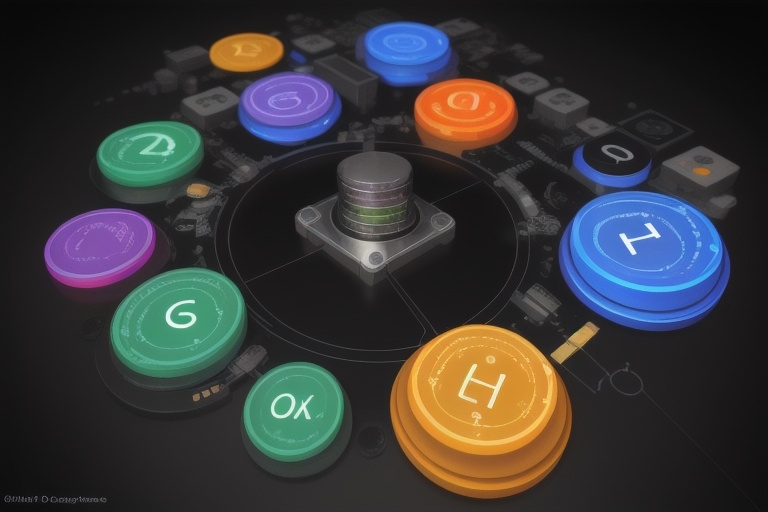Artificial intelligence (AI) has been a game-changer in the competitive gaming landscape, and nowhere is this more evident than in games that involve complex strategy and decision-making. Take poker, for instance—historically, it's a game that's relied heavily on human intuition, bluffing skills, and psychological play. However, in recent years, AI has shown that it's up to the task and capable of not only competing with but surpassing the best human players.
Artificial intelligence (AI) has been a game-changer in the competitive gaming landscape, and nowhere is this more evident than in games that involve complex strategy and decision-making. Take poker, for instance—historically, it's a game that's relied heavily on human intuition, bluffing skills, and psychological play. However, in recent years, AI has shown that it's up to the task and capable of not only competing with but surpassing the best human players.
In one notable instance back in 2017, an AI program named Libratus, crafted by the pioneering minds at Carnegie Mellon University, accomplished a feat that turned heads worldwide. It boldly faced off against and defeated four renowned professional poker players in a grueling 20-day marathon of no-limit Texas Hold'em. This wasn't just a victory in a game of cards; it was a resounding demonstration of AI's advancing capabilities in strategic reasoning, decision-making under uncertainty, and, remarkably, the ability to bluff—an aspect of poker intrinsically linked to human behavior.
The impact of AI on the gaming industry goes far beyond impressive head-to-head victories, however. It has pushed the development of games to new frontiers, enhancing the player experience by making games smarter, more dynamic, and authentically challenging. This article delves into the multifaceted role of AI in gaming. We'll explore its myriad applications, from the behavior of non-player characters (NPCs) and the creation of stunning game visuals to the design of infinite worlds through procedural content generation. AI's influence has fundamentally changed game development and the way games are played, and as we look ahead, it's clear that AI's role in interactive entertainment is only set to deepen.
The Evolution of AI in Competitive Gaming
Long before Libratus's poker victory, AI has been making inroads in games with strategic depth. Historical milestones include IBM's Deep Blue's victory over world chess champion Garry Kasparov in 1997 and Google DeepMind's AlphaGo, which defeated Go champion Lee Sedol in 2016. These AI victories in games like chess, Go, backgammon, and poker showcased significant advancements in programming, bridging artificial intelligence and machine learning. Each success story illustrates AI's growing proficiency at tasks that require intricate planning, adaptability, and the processing of vast amounts of data.
Enhancing Gameplay with AI
The gaming industry has never been one to shy away from innovation, and AI has been instrumental in elevating gameplay. Game developers now imbue NPCs with behavioral algorithms that simulate the unpredictability and resourcefulness of human opponents. This advancement enriches storytelling and sets a higher bar for player engagement. AI-driven characters can react dynamically to the player's actions, exhibit evolving strategies, and display emotions, traits that imbue a game with life and authenticity.
The application of AI doesn't stop at NPC behavior. It extends to game visuals, where machine learning algorithms can craft intricate textures and realistic environments. These tools allow for the generation of complex landscapes and character animations with more efficiency, pushing the aesthetic boundaries of games and improving visual fidelity for a more immersive experience.
Procedural Content Generation and Infinite Gaming Worlds
One revolutionary AI application in gaming is procedural content generation. This technique empowers developers to create extensive, varied gaming environments that can surprise even the creators themselves. By applying algorithms driven by set rules and controlled randomness, AI can automatically generate landscapes, quests, and even entire worlds. This not only enhances the player's sense of discovery and wonder but also extends the replay value of games. It signals an era where the boundaries of a gaming world are limited only by the creator's imagination.
AI and Complex Decision Modeling
AI's sophisticated decision-making abilities have also refashioned strategy-based and simulation games. Complex decision modeling enables the creation of systems where game elements can grow and interact without direct player input. By simulating real-world behaviors and outcomes, AI provides a depth of gameplay that is more engaging and closer to reality. This smarter game mechanics lead to scenarios where every choice made by the player can have branching consequences, adding layers of depth to gaming strategies.
The Future of AI in Gaming
The advancements in AI herald a future where the gaming industry will experience continuous transformation. As AI technology keeps improving, the prospect of even more remarkable developments in gaming looms large on the horizon. We can anticipate games with AI that can learn from player behavior and adapt in real-time, crafting unique and personalized gaming experiences. The collaboration between human players and AI can also give rise to new gameplay mechanics and interactive storytelling, where every decision has the potential to alter the narrative in substantial ways.
The integration of AI in gaming has set a thrilling precedent for what the technology can achieve in terms of realism, engagement, and complexity. As AI becomes increasingly sophisticated and integrated into the gaming ecosystem, it paves the way for innovations that we are only beginning to imagine. Both developers and players stand at the brink of a new dawn in gaming—an AI-driven era that promises experiences that are more realistic, immersive, and tailored than ever before.
In the evolving landscape of AI in gaming, it is evident that we are merely scratching the surface of the impact and potential AI holds. As this technology forges ahead, the only certainty is that artificial intelligence will continue to redefine the boundaries of interactive entertainment. Whether it's mastering the art of the perfect poker face or generating endless digital universes, AI's role in gaming is just getting started, and the journey ahead is as exhilarating as it is unpredictable.
Information for this article was gathered from the following source.




